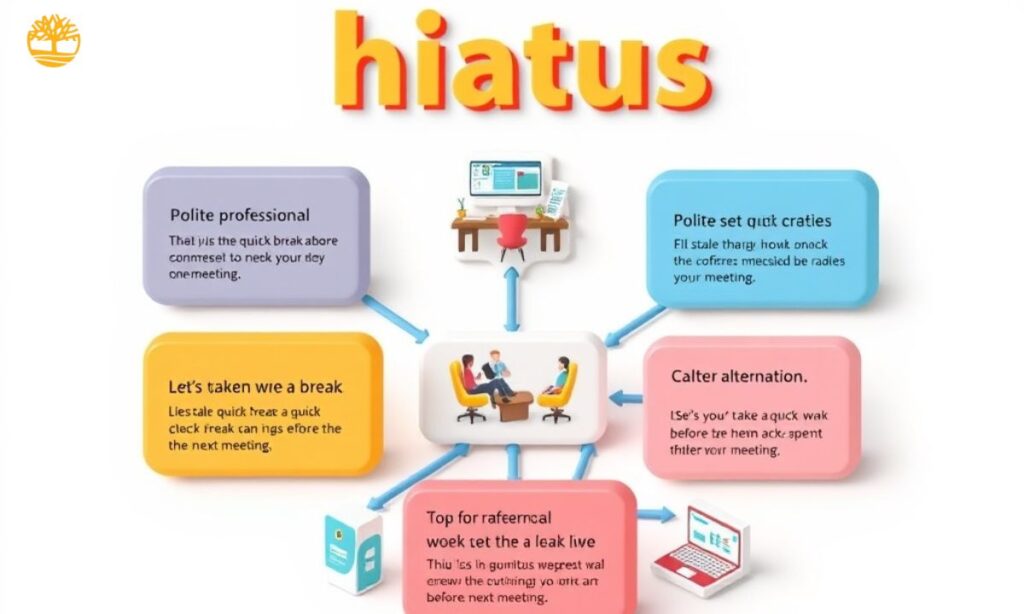Language changes fast, and words like Luman and hiatus are perfect examples of how meaning evolves through culture, media, and daily use. In 2026, people search these terms not just for definitions, but for context, symbolism, and real-world relevance.
This guide explains Luman meaning, clears up confusion with lumen and Lumon, and fully breaks down hiatus in modern English. By the end, you’ll understand how these words work in text, pop culture, work life, and everyday communication.
What Does Luman Mean in 2026?
Luman does not have a fixed dictionary definition, which is why it creates so much confusion. In modern usage, it functions mainly as a name, label, or symbolic term, rather than a standard English word. People encounter Luman through branding, usernames, creative projects, and pop culture references.
In 2026, Luman meaning depends entirely on context. Sometimes it is a stylized name, sometimes a typo for “lumen,” and sometimes a reference shaped by television, gaming, or online communities. Understanding Luman requires looking at where and how it is used.
Is Luman a Real English Word?
Luman is not recognized as a standard English word in major dictionaries. It does not have an agreed-upon definition like pause, break, or light. Instead, it exists as a proper noun or invented term, similar to brand names or fictional companies.
Because it lacks a fixed meaning, writers should always clarify what Luman refers to when using it. Without explanation, readers may misunderstand it as a scientific term, a typo, or a pop culture reference.
Luman vs Lumen: The Most Common Confusion
One of the biggest reasons people search for Luman meaning is confusion with lumen. These words sound nearly identical, but their meanings are completely different.
A lumen is a scientific unit that measures visible light output. It is used in physics, engineering, and product specifications.
Luman, on the other hand, has no scientific definition and is typically used as a name or symbolic label.
Key Differences Explained Clearly
- Lumen
- Scientific and measurable
- Used in lighting, physics, and engineering
- Appears on product packaging and technical documents
- Scientific and measurable
- Luman
- Creative or fictional
- Used in branding, usernames, or stories
- Carries tone and symbolism, not data
- Creative or fictional
Using the wrong term in the wrong context can hurt clarity, credibility, and SEO.
Luman vs Lumen Comparison
| Aspect | Luman | Lumen |
| Dictionary meaning | No | Yes |
| Type | Name or label | Scientific unit |
| Usage | Branding, fiction, usernames | Light measurement |
| Context | Cultural or creative | Technical or factual |
| Example | “Luman Systems” | “800 lumens bulb” |

Luman Meaning in Text Messages and Online Chats
In digital communication, Luman often appears without explanation. Sometimes it is a username or identity marker, and other times it is a stylistic filler similar to “um.” In casual typing, people may use it instinctively without realizing it has no defined meaning.
In chats, capitalization and placement matter. A capitalized Luman often signals a name, while lowercase usage may suggest hesitation or an informal pause. Emojis, hashtags, and platform culture strongly influence interpretation.
How Online Communities Shape Luman Meaning
Different platforms use Luman in different ways. What feels normal in one community may feel confusing in another. This is why context always matters.
- Gaming communities often treat Luman as a character or faction name
- Branding spaces see it as modern, minimal, and futuristic
- Fan culture links it to corporate symbolism and dystopian themes
- Casual chat may treat it as filler or stylistic text
Because of this flexibility, Luman has become a shape-shifting word, gaining meaning from usage rather than definition.
Luman in Pop Culture and Fiction
Writers and creators like Luman because it sounds clean, modern, and believable. It fits easily into futuristic or corporate settings without sounding unrealistic. Over time, repeated use in stories gives it emotional weight.
In fiction, Luman often represents control, systems, technology, or cold efficiency. Designers pair it with minimal logos and muted colors to reinforce these ideas. As audiences recognize the pattern, the word becomes symbolic.
Lumon vs Luman: Clearing the Severance Confusion
A major source of confusion comes from the Apple TV+ series Severance. The fictional company in the show is called Lumon Industries, not Luman. Many fans mistakenly type Luman, which spreads the error online.
In the show, Lumon symbolizes corporate control, divided identity, and institutional power. While Lumon may be inspired by the word “lumen,” its meaning is narrative, not scientific.
Understanding this distinction helps avoid mixing fandom language with general definitions.
What Does Lumon Stand For in Severance?
Lumon does not stand for an acronym. It is a symbolic name chosen to reflect themes of light, truth, and irony. While lumen means light, Lumon represents hidden truth and corporate secrecy.
This contrast is intentional. The company appears clean and orderly, yet controls memory and identity. That tension is what gives the name its power in storytelling.
Why Luman Is Often Mistaken for Lumon
The similarity in spelling and sound causes frequent confusion. Online discussions, search queries, and even articles mix the terms incorrectly. Over time, this has blurred boundaries between Luman as a generic term and Lumon as a specific fictional entity.
For clarity:
- Lumon belongs to Severance
- Luman is a broader, undefined term shaped by usage
What Does Hiatus Mean in 2026?
A hiatus means a temporary pause or break in activity. It does not imply an ending, only a planned or necessary stop. The word comes from Latin, meaning an opening or gap.
In 2026, hiatus is widely used in professional, creative, and personal contexts. It signals intention, not failure. People use it to explain rest, reset, or transition.
Common Uses of Hiatus in Daily Life
Hiatus appears frequently in entertainment. TV shows go on hiatus between seasons, and podcasts pause production for planning. This reassures audiences that the project will return.
Professionally, people take hiatuses from work or education for health, family, or personal growth. Social media hiatuses are also common, helping users set boundaries and reduce burnout.
Hiatus Meaning vs Quit or Stop
Understanding this difference is important. A hiatus is temporary, while quitting is permanent. The word communicates responsibility and foresight rather than abandonment. Using hiatus allows people to pause without closing the door on future work or creativity.

Polite and Professional Alternatives to Hiatus
In formal settings, you may want alternatives that sound smoother or more specific. These words often fit better in business or academic writing.
- Pause
- Recess
- Intermission
- Interval
- Suspension
Each alternative carries a slightly different tone, but all imply a break without finality.
Casual Alternatives to Hiatus in Everyday Speech
In informal communication, simpler words feel more natural. These are common in texts, social posts, and conversations.
- Break
- Time-out
- Breather
- Step back
- Chill period
These alternatives sound friendly and relatable, making them ideal for personal updates.
Choosing the Right Word for Hiatus
The best word depends on audience and setting. Professional environments benefit from clarity and formality. Casual settings benefit from warmth and simplicity.Matching tone to context improves communication and avoids misunderstanding.
Meaning of “Stand For” in English
The phrase stand for means to represent, symbolize, or support something. It is commonly used to explain abbreviations, values, or ideas. It works in both literal and abstract contexts, making it one of the most flexible phrases in English.
Examples of “Stand For” in Everyday Use
- NASA stands for National Aeronautics and Space Administration
- The flag stands for unity and freedom
- She stands for honesty and fairness
- This symbol stands for peace
Using “stand for” correctly helps express meaning clearly and confidently.
How Luman and Hiatus Reflect Modern Culture
Luman and hiatus may seem unrelated, but together they reflect modern life. Luman often symbolizes systems, identity, and structure. Hiatus represents rest, pause, and balance.
In a world driven by productivity, these words highlight tension between control and recovery. That’s why they resonate so strongly in 2026.
Why Context Matters More Than Definitions
Neither Luman nor hiatus can be fully understood without context. Luman changes meaning based on culture and usage. Hiatus changes tone based on situation.
Modern language is flexible, and meaning is shaped by how people use words, not just how dictionaries define them.
SEO Notes for Writers Using Luman and Hiatus
- Always define “Luman” on first mention
The word Luman is not part of standard English dictionaries, so readers and search engines both need context. If the term refers to a brand, fictional concept, username, or cultural reference, explain it immediately. This avoids confusion and reduces bounce rates caused by unclear terminology. - Avoid using “Luman” when you actually mean “lumen”
Lumen is a scientific unit of light measurement and is widely recognized in technical and consumer content. Using Luman in its place can harm credibility, especially in lighting, technology, or product reviews. Search engines also treat this as a spelling or intent mismatch. - Clearly distinguish “Lumon” vs “Luman” in pop culture content
In entertainment and media articles, Lumon is commonly associated with the TV series Severance. Mixing it up with Luman can confuse readers and dilute keyword relevance. Always clarify which term you are referring to and why it matters in that context. - Use alternatives to “hiatus” to vary language naturally
While hiatus is accurate, repeating it excessively can feel stiff or mechanical. Natural alternatives like break, pause, time away, temporary stop, or planned gap improve readability while keeping meaning intact. This also helps avoid keyword stuffing. - Prioritize clarity over cleverness
Ambiguous or invented terms may sound interesting, but they often reduce reader trust. Clear language signals authority and reliability, which improves engagement metrics such as time on page and return visits. Search performance benefits when users understand content quickly.
Key Takeaways
- Luman is not a standard English word
Its meaning is not fixed and cannot be assumed by readers or algorithms without explanation. - It is frequently confused with “lumen” or “Lumon”
These terms belong to entirely different domains, which makes accuracy critical for SEO and credibility. - The meaning of Luman depends entirely on context
Without context, it has no universal definition or searchable intent. - Hiatus refers to a temporary, intentional break
It implies a planned pause, not an ending, which is important for tone and reader expectations. - Choosing the right alternative improves clarity and flow
Varied wording keeps writing human and avoids robotic repetition. - Language reflects culture, balance, and values
Thoughtful word choice signals professionalism and respect for the reader’s time and understanding.
Final Thoughts
Understanding Luman and hiatus goes beyond definitions. These words show how language evolves through media, work, and digital culture. Luman represents ambiguity and symbolism, while hiatus represents balance and intention.
In 2026, knowing how and when to use these terms helps you communicate clearly, write better content, and understand modern conversations with confidence.

Muhammad Shoaib is a seasoned content creator with 10 years of experience specializing in Meaning and Caption blogs. He is the driving force behind ExactWordMeaning.com, where he shares insightful, clear, and engaging explanations of words, phrases, and captions.











